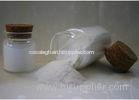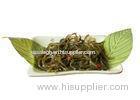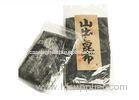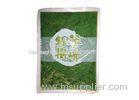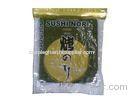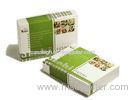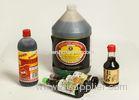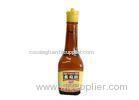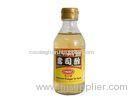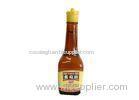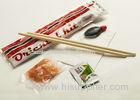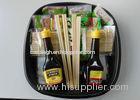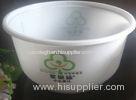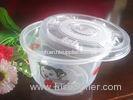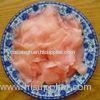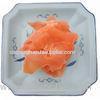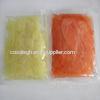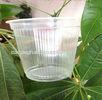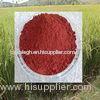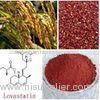|
Yun Xing Food Supply Co.,Ltd
|
Sweet Red Natural Fresh Onion Bulbs Contains Rich Microelement For Market, The fleshy scales, Light
| Place of Origin: | Zhejiang, China (Mainland) |
|
|
|
| Add to My Favorites | |
| HiSupplier Escrow |
Product Detail
Sweet Red Natural Fresh Onion Bulbs Contains Rich
Sweet Red Natural Fresh Onion Bulbs Contains Rich Microelement For Market, The fleshy scales, Light yellow and soft
Quick Detail:
Product Type: Liliaceous Vegetabless, liliaceous vegetabless
Type: Onion
Style: Fresh, fresh
Cultivation Type: Common
Part: Non-Peeled
Shape: Round
Maturity: 90%
Size (cm): 7
Certification: HACCP
Weight (kg): 20
Place of Origin: Shandong China (Mainland)
Brand Name:FED (Fresh Every Day)
Model Number: O1104
Origin: local production
Color: red, yellow, white
Advantage: intergrating process, store ad export in a body
Description:
Shandong onion yellow and red 7-9 CM farm factory direct organic Shandong onion for UAE market
1) HS. Code: 07031010
2) Variety: Shandong Red onion
3) Size: 2-3cm, 3-5cm, 5-7cm,7-9cm and so on
4) Shape: flate and round
5) Supplier time: all the year round
6) Package: 5kg/7kg/10kg/12kg/15kg/20kg mesh bag
7) Storing: temperature: +2’C
8) Moisture: 65%
9) Ventilation: 15CBM/H
10) Rich experience of profession exportation ensures us to deal the whole situation enficiently and with
high quality.
11) Inspection Certificate: Certificate of Origin, Phytosanitary Certificate and Inspection Certificate of
Quantity
In the autumn the leaves die back and the outer scales of the bulb become dry and brittle, and this is the time at which the crop is normally harvested. If left in the soil over winter, the growing point in the middle of the bulb begins to develop in the spring. New leaves appear and a long, stout, hollow stem expands, topped by a bract protecting a developing inflorescence. The flower-head takes the form of a globular umbel of white flowers with parts in sixes. The seeds are glossy black and triangular in cross section.
Nutrition and health
Most onion cultivars are about 89% water, 4% sugar, 1% protein, 2% fibre and 0.1% fat. They contain vitamin C, vitamin B6, folic acid and numerous other nutrients in small amounts. They are low in fats and in sodium, and with an energy value of 166kJ (40 kcal) per 100 g (3.5 oz) serving, they can contribute their flavour to savoury dishes without raising caloric content appreciably.
Onions contain chemical compounds such as phenolics and flavonoids that basic research shows to have potential anti-inflammatory, anti-cholesterol, anticancer and antioxidant properties.[medical citation needed] These include quercetin and its glycosides quercetin 3,4'-diglucoside and quercetin-4'-glucoside. There are considerable differences between different varieties in potential antioxidant content. Shallots have the highest level, six times the amount found in Vidalia onions, the variety with the smallest amount.
Some people suffer from allergic reactions after handling onions. Symptoms can include contact dermatitis, intense itching, rhinoconjunctivitis, blurred vision, bronchial asthma, sweating and anaphylaxis. There may be no allergic reaction in these individuals to the consumption of onions, perhaps because of the denaturing of the proteins involved during the cooking process.
While onions and other members of the genus Allium are commonly consumed by humans, they can be deadly for dogs, cats, guinea pigs, monkeys and other animals. The toxicity is caused by the sulfoxides present in raw and cooked onions which many animals are unable to digest. Ingestion results in anaemia caused by the distortion and rupture of red blood cells. Sick pets are sometimes fed with tinned baby foods and any that contain onion should be avoided. Nor is it good for pets to be fed onion-containing leftovers such as pizza, canned spaghetti, Chinese dishes and onion rings. The typical toxic doses are 5 g (0.2 oz) per kg (2.2 lb) bodyweight for cats and 15 to 30 g (0.5 to 1.1 oz) per kg for dogs.
In India, some sects do not eat onions as they believe them to be an aphrodisiac. Various schools of Buddhism also advise against the consumption of onions and garlic because they increase desire when eaten cooked and anger when eaten raw.
Onion types and products
Common onions are normally available in three colours: yellow, red, and white. Yellow onions, also called brown onions, are full-flavoured and are the onions of choice for everyday use. Yellow onions turn a rich, dark brown when caramelized and give French onion soup its sweet flavour. The red onion is a good choice for fresh use when its colour livens up the dish. It is also used in grilling and char-broiling. White onions are the traditional onions that are used in classic Mexican cuisin


















